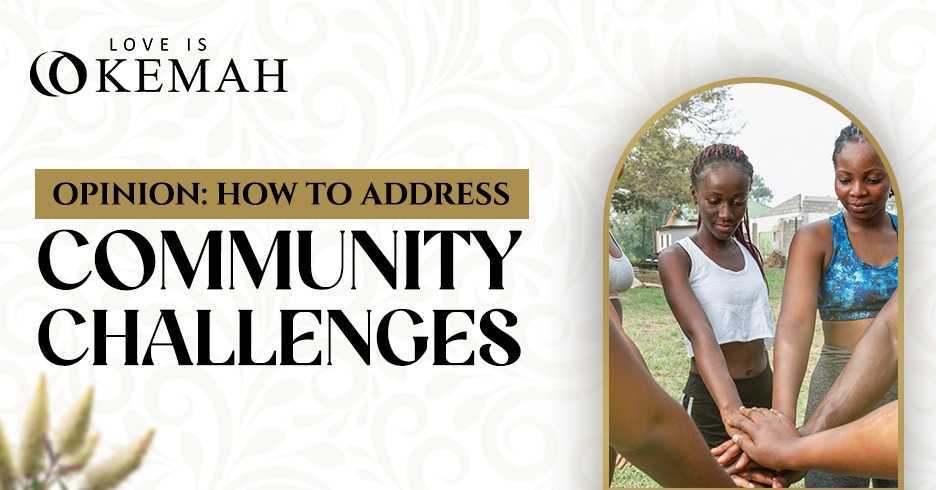
Opinion: How to Address Community Challenges
Communities around the world face a variety of challenges, ranging from economic instability and lack of access to education to environmental issues and social inequality. However, the way we address these challenges can vary significantly depending on the community’s unique needs and strengths.
In this blog, we will explore practical and innovative ways to address community challenges, with a special focus on the town of Okemah as an example of resilience, collaboration, and grassroots solutions.
1. Understanding the Roots of Community Challenges
Before diving into solutions, it’s essential to identify the root causes of the challenges communities face. These issues are often intertwined with deeper systemic problems such as poverty, lack of resources, and historic inequalities. In a town like Okemah, which is rich in history but still faces the pressures of modern life, the roots of challenges are often connected to economic shifts, the struggle to maintain cultural heritage, and ensuring that everyone, regardless of background, has access to the opportunities they need to thrive.
For example: In Okemah, the decline in agricultural jobs and industries that once fueled the local economy has left a gap that needs to be filled by new industries or community-driven initiatives. Understanding this shift helps to frame how we address these challenges.
2. Leveraging Community Assets
One of the most effective ways to address community challenges is to leverage the assets that already exist within the community. Every community has unique strengths that can be mobilized to address problems. In Okemah, one of the town’s greatest assets is its tight-knit sense of community. People know each other, care about each other’s well-being, and are willing to work together to solve problems.
Communities that recognize and utilize their social capital—such as local leaders, volunteers, and existing institutions—are better equipped to face challenges. In Okemah, for instance, community heroes have often emerged, people who are willing to step up and bring others together. These local leaders inspire collaboration and action.
3. Building Resilience Through Education and Innovation
Education is one of the most powerful tools for addressing long-term community challenges. Whether it’s through improving local schools, offering vocational training, or providing adult education programs, investing in education equips community members with the knowledge and skills they need to adapt to changing circumstances.
In Okemah: Community leaders have begun to embrace more innovative solutions, such as digital literacy programs for adults, helping residents keep pace with the broader economy. In addition, local schools are being encouraged to create programs that not only focus on academics but also foster critical thinking and problem-solving skills—preparing young people to be leaders in their own right.
Innovation can also come in the form of collaboration between educational institutions and local businesses. Partnering to create job training programs can lead to new opportunities that didn’t exist before. This is particularly important for towns like Okemah, where traditional industries may no longer be able to support the population as they once did.
4. Fostering Economic Development
Economic instability is a challenge that affects many small towns, and Okemah is no exception. One effective approach to addressing this issue is by fostering local economic development through entrepreneurship and small business support. Encouraging residents to start their own businesses not only creates jobs but also keeps money circulating within the community.
A key strategy here is to: Provide residents with the resources they need to succeed, such as access to financing, business education, and mentorship. Okemah, like many small towns, could benefit from a “buy local” movement that encourages residents to support businesses in their own community. This not only strengthens the local economy but also fosters a sense of pride and ownership among residents.
Additionally, investing in infrastructure—such as high-speed internet, transportation, and utilities—can attract new businesses and industries to the area, creating long-term economic stability.
5. Promoting Inclusivity and Equity
Community challenges often disproportionately affect marginalized groups, including low-income families, people of color, and those with disabilities. Addressing these challenges requires a commitment to inclusivity and equity. It means making sure that everyone in the community has a voice and that their needs are being met.
In Okemah: Efforts to promote inclusivity could include creating forums where residents can discuss the issues they’re facing, such as town halls or community roundtable discussions. These forums allow community members to raise their concerns and suggest solutions, fostering an environment of collaboration and shared responsibility.
It’s also essential to ensure that any solutions proposed are accessible to all members of the community. This might mean offering services in multiple languages, providing transportation to meetings, or making sure that information is distributed in a way that reaches everyone.
6. Encouraging Civic Engagement and Volunteerism
Civic engagement is another powerful tool for addressing community challenges. When people are actively involved in their community—whether by voting, attending town meetings, or volunteering—they help shape the future of their town. Volunteering, in particular, can have a significant impact on community challenges.
In Okemah: Civic engagement has always been a cornerstone of community strength. From local clean-up efforts to neighborhood watch programs, residents who volunteer their time and energy help build a sense of unity and resilience. By encouraging more people to get involved, communities can create a stronger foundation for addressing challenges as they arise.
To inspire more volunteerism, communities can highlight the benefits of civic engagement and recognize the contributions of local heroes who make a difference. Okemah, for example, could hold an annual Community Heroes Day to celebrate those who have gone above and beyond to improve the town.
7. Sustainable Solutions and Long-Term Planning
It’s important to remember that addressing community challenges is not a one-time event. Sustainable solutions require long-term planning and continuous effort. This means creating action plans with clear goals, timelines, and measurable outcomes. It also involves regularly reviewing and adjusting strategies based on feedback and changing circumstances.
Okemah can serve as a model for sustainability by: Developing a long-term vision that focuses on environmental stewardship, economic resilience, and social inclusivity. For example, the town could invest in renewable energy sources, such as solar panels, which not only benefit the environment but also create jobs and reduce energy costs for residents.
Sustainability also means making sure that future generations have the tools and resources they need to continue the work. This includes investing in youth programs, mentorship opportunities, and creating pathways for young people to take on leadership roles within the community.
8. Collaboration with External Partners
While it’s essential for communities to build on their internal strengths, collaboration with external partners can also be beneficial. These partnerships might include working with nonprofits, government agencies, or businesses that share the community’s goals.
In Okemah: Collaborations with nearby towns or regional organizations could help address shared challenges, such as improving public transportation or attracting new industries to the area. Additionally, partnerships with state or federal programs can provide much-needed funding and resources that smaller communities might not have access to on their own.
9. Conclusion: Building a Stronger Community Together
Addressing community challenges is no easy task, but it’s one that can be accomplished through collaboration, innovation, and a shared commitment to making things better for everyone. By leveraging existing assets, investing in education and economic development, promoting inclusivity, and encouraging civic engagement, communities like Okemah can not only overcome the challenges they face but also build a brighter future.
The key is to approach these challenges with a sense of hope and determination—understanding that while no single solution will fix everything, every small step forward brings the community closer to its goals. Through resilience, adaptability, and the collective efforts of its people, Okemah can continue to thrive and serve as an example of how communities can come together to address their challenges and create lasting change.
